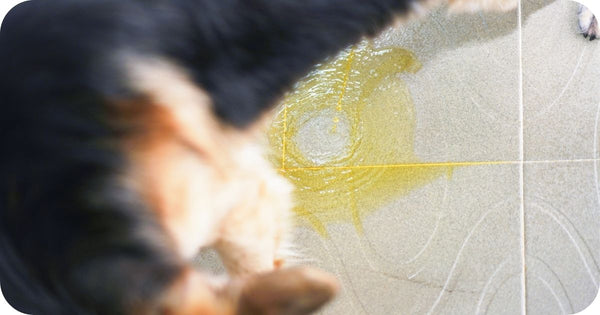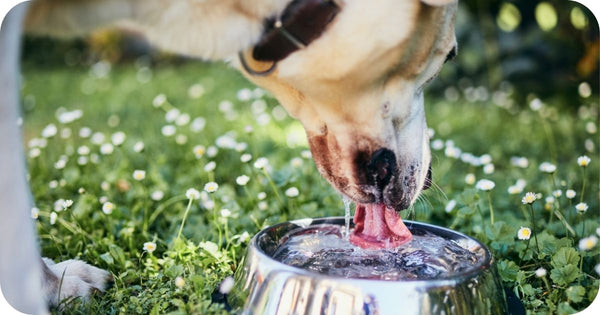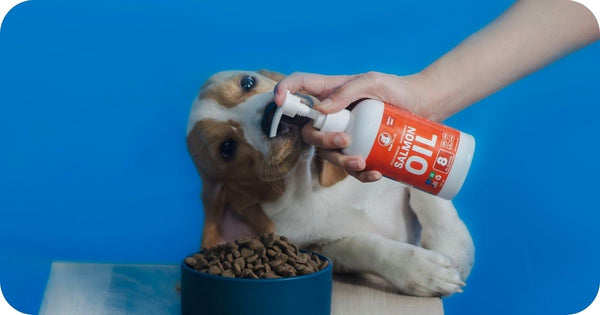
Understanding Canine UTIs: Causes, Prevention, and What to Do
February 16, 2024Man's best friend, our loyal companions, dogs, are prone to various health issues, including urinary tract infections (UTIs). A UTI in dogs can cause discomfort and distress, making it crucial for pet owners to be aware of the causes, symptoms, prevention, and necessary actions when their furry friends face this health challenge.
What is UTI in Dogs?

A urinary tract infection (UTI) in dogs occurs when bacteria, typically from the surrounding environment, travel up the urinary tract and into the bladder. The condition can affect any part of the urinary system, including the kidneys, bladder, and urethra. Just like in humans, UTIs can be painful for dogs and require prompt attention.
How Do Dogs Get UTI?
Several factors contribute to the development of UTIs in dogs. One common cause is the infiltration of bacteria into the urinary tract via the urethra. Various conditions, such as bladder stones, can facilitate this process. These stones can create an environment conducive to bacterial growth, making the urinary tract susceptible to infections. Pet owners need to be aware of the potential role of bladder stones in UTIs and take preventive measures to mitigate their impact on their canine companions.
Female dogs are generally more susceptible to UTIs due to their shorter urethras, which allow bacteria to reach the bladder more easily. Additionally, older dogs and those with weakened immune systems may be at a higher risk of developing UTIs.
How to Prevent Dogs from Having UTI

Preventing UTIs in dogs involves proactive measures to maintain their urinary health. Ensure your dog has access to clean and fresh water at all times to encourage regular urination and help flush out potential bacteria.

Regular bathroom breaks and consistent hygiene practices, especially in female dogs, can significantly reduce the risk of infection.
Maintaining a balanced and nutritious diet, including the urinary system, is crucial for overall health. Some pet owners also incorporate supplements, such as cranberry extract or salmon oil, into their dog's diet to promote urinary tract health.

Speaking of supplements, salmon oil for dogs, rich in omega-3 fatty acids, has been known to support overall canine health, including the urinary system. The anti-inflammatory properties of salmon oil can contribute to a healthier urinary tract, potentially reducing the risk of infections.
Recognizing Signs of a UTI in My Dog
Detecting a UTI in dogs requires careful observation of their behavior and physical symptoms. Signs of a possible UTI include increased frequency of urination, straining or difficulty urinating, blood in the urine, foul-smelling urine, and changes in behavior, such as lethargy or increased irritability.
What to Do If I Suspect That My Dog Has a UTI?

If you suspect your dog has a UTI, it's essential to consult with your veterinarian for a proper diagnosis and treatment plan. Your vet may recommend a urinalysis, urine culture, or other diagnostic tests to confirm the infection. Treatment typically involves a course of antibiotics prescribed by the veterinarian, along with supportive care to alleviate symptoms.
Conclusion
Understanding the causes, prevention methods, and signs of urinary tract infections in dogs is crucial for responsible pet ownership. By incorporating preventive measures, such as maintaining good hygiene practices, providing a balanced diet, and considering supplements like salmon oil, you can contribute to your dog's overall well-being and minimize the risk of UTIs. If you notice any signs of a UTI in your furry friend, prompt veterinary attention is key to ensuring a quick and effective recovery.
